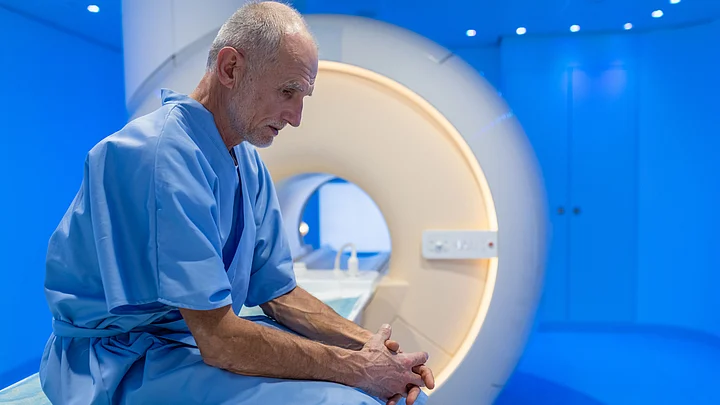Scientists have found bacteria that could provide a valuable link to prostate cancer in men, according to a study published in the European Urology Oncology journal.
The study states that the discovery of specific bacteria in the prostate and urine microbiomes could revolutionize prostate cancer treatment.
Prostate cancer is classified as the most common non-skin malignancy in men across the world, with over 250,000 deaths every year. As you grow older, your prostate cancer risk grows, with most cases being reported in men above 50.
According to the study, which was led by researchers at the University of East Anglia, the discovery of these bacteria doesn't prove that these bacteria cause prostate cancer.
However, even if the bacteria isn't proved to be the cause of prostate cancer, the detection of this bacteria could serve as a sort of early-warning system for prostate cancer, and consequently, save thousands of lives every year.
The study analysed urine samples from subjects to identify traces of bacteria in the urine of men undergoing tests for prostate cancer or those diagnosed with prostate cancer.
The study adds that, "material secreted by the prostate gland appears in the urine, and reflux of urine into the prostate is well established, supporting the existence of a prostate-urine loop."
Which is a fancy way of saying that the connection between urine analysis and evidence of prostate health is indisputable.
The study states that investigations found a total of five species of bacteria associated with advanced prostate cancer in their analyses. Three of these bacteria were discovered for the first time ever. It adds:
"Men who had one or more of the species in their urine, prostate or tumour tissue were 2.6 times more likely to see their early stage cancer progress to advanced disease than men who did not."
Lead scientist on the study, Colin Cooper, who is a professor of cancer genetics at the University of East Anglia, added that while it's possible the bacteria may not be causing prostate cancer, the presence of these bacteria may indicate that the men in question have higher immune-system deficiencies that allow these bacteria to proliferate.
The presence of these bacteria, in short, could indicate a higher risk of prostate cancer reaching advanced stages.
However, Cooper adds, if the bacteria is found to be causative of prostate cancer, this could revolutionize prostate cancer treatment.
He adds, in a statement to The Guardian, that identifying a cause-and-effect relationship between the bacteria and prostate cancer could let them use an antibiotic to target and eliminate the bacteria in question.
However, he adds that antibiotics don't enter the prostate very well and that they would need to develop a VERY SPECIFIC antibiotic that only kills the bacteria in question while leaving others unharmed.
Dr. Hayley Luxton from Prostate Cancer UK, added in a statement to The Guardian, that in the current absence of any other reliable way to identify aggressive or highly malignant prostate cancers, this could provide welcome relief for both patients and doctors.
The next step would be to identify that these bacteria are not only indicative, but also causative, of prostate cancer. If done, this would be the biggest breakthrough in prostate cancer treatment, saving hundreds of thousands of lives every year.
(With inputs from The Guardian.)

